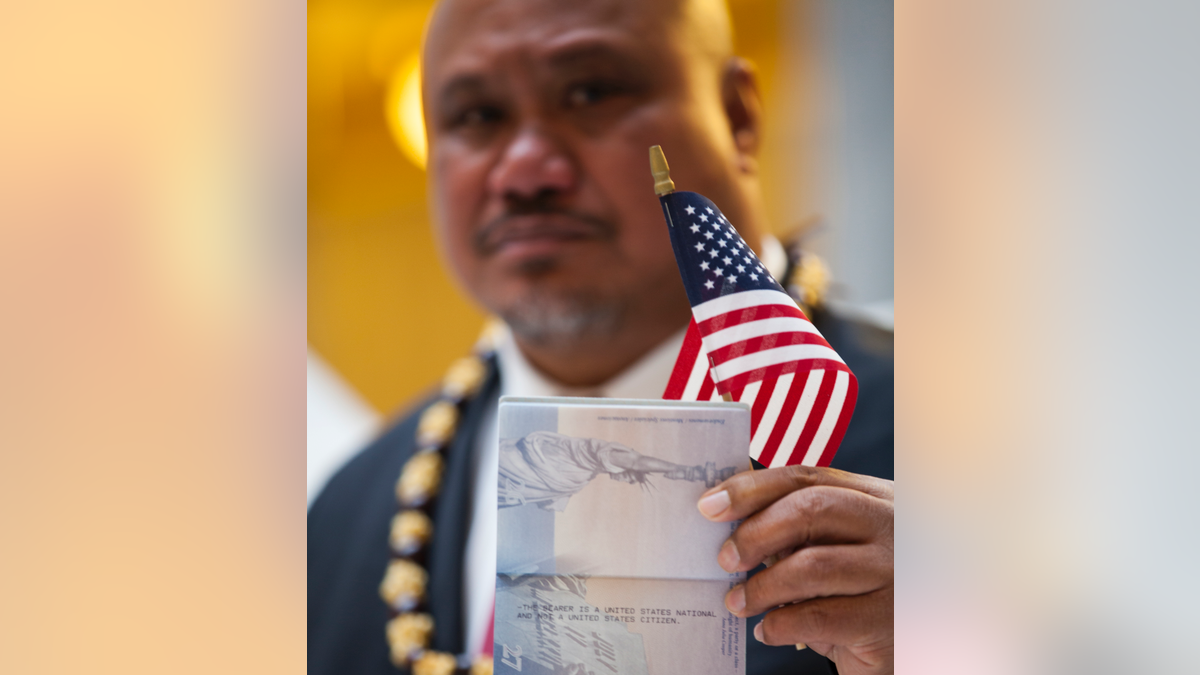
HONOLULU – American Samoa residents living in Utah filed a lawsuit Tuesday in a second attempt to gain citizenship status for residents of the U.S. territory in the South Pacific.
Lead plaintiff John Fitisemanu, and others born in American Samoa, are petitioning U.S. courts for citizenship under the 14th Amendment of the Constitution, which confers citizenship at birth to anyone born in the United States. The Associated Press obtained the documents before the case was filed.
Although American Samoa became a U.S. territory in 1900, those born there aren't recognized as citizens, and are instead considered U.S. nationals.
Under that status, they cannot vote, run for office, sponsor family members for immigration to the U.S., or serve on a jury, despite paying American taxes. They are issued special U.S. passports that say: "This bearer is a United States national and not a United States citizen."
Plaintiffs also claim they have faced restrictions when traveling abroad, at times obtaining special permits and paying fees that wouldn't apply to U.S. citizens.
Fitisemanu, who lives in Utah, has even "been discouraged from applying for certain federal and state jobs that list U.S. citizenship as an eligibility requirement, diminishing his employment opportunities," according to the documents.
"If someone has a birth certificate showing they were born on U.S. soil, they shouldn't have to jump through any more hoops to be recognized as a U.S. citizen," said Neil Weare, president and founder of nonprofit Equally American, the attorney leading the lawsuit.
In 2016, the Supreme Court declined to reconsider a ruling from a lower court preserving American Samoa's status as the only U.S. territory without automatic claim to citizenship.
American Samoans can pursue naturalized citizenship, but the lawsuit says it is a "lengthy, costly, and burdensome" process. Those born in the territory can claim citizenship at birth if one of their parents is a U.S. citizen.
American Samoa consists of seven South Pacific islands located 2,600 miles (4,184 kilometers) southwest of Hawaii. The islands are home to about 55,000 residents, most of which live in or near the capital of Pago Pago.









































